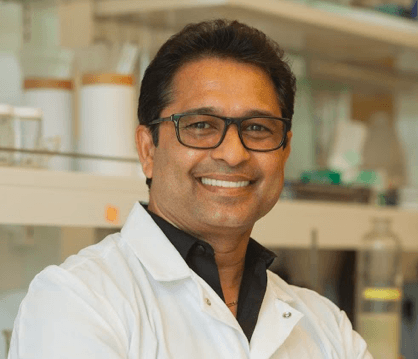The act of acquiring a research grant can be something that many professors do over the course of their careers, yet can be difficult nonetheless.
One such professor who has gone through the process is Navindra Seeram, a professor in the University of Rhode Island’s biomedical and pharmaceutical sciences department. Seeram mentors graduate students and teaches in the classroom, all while carrying out research.
Seeram explained the difficulty of obtaining a research grant. The process is competitive, and preliminary data is required in order to be considered.
Seeram described the process by first explaining that financing can come from a variety of places. One can apply for grants from federal sources, such as the Department of Agriculture (USDA), in Seeram’s case. Companies, people and foundations looking for research in a specific field or topic offer grants to professionals working in the field.
“People who are scientists are constantly writing for grants,” Seeram said.
Receiving a research grant is only the beginning of a long road of dedication. Seeram explained that research grants cover important expenses which would not otherwise be possible. Other than the obvious research expenses of materials, grants are important for paying the necessary team.
“The bottom line is that the funds that come in are supporting the active research and the people that are working on it- the personnel,” Seeram said. “Having a competent and interested team is a paramount aspect of what makes research possible.”
In addition to funding pay for research assistants, there are several other costs which a grant will cover. The grant allows for travel costs, as traveling and attending meetings is a necessary part of the process.
Designing and creating a website is another expense that would be impossible without the funding of a foundation or organization. In the case of Seeram’s research, creating a website in order to reach the consumer was necessary.
With grants, there are also overhead costs.
“With money that comes in, there is a certain percentage that goes to overhead, 3.46 percent goes to the University of Rhode Island,” Seeram said of his most recent grant.
Seeram received a grant last year for $500,000 from the USDA. The research attempts to grow the maple industry and offer maple as a healthier alternative to traditional sweeteners, as proven through the extensive research being undergone. Along with Yinjiao Ye and Christy Ashley, Seeram’s team is working on marketing and sales for maple and the “untapped potential” of this sweetener.
The research of maple is incorporated into the classroom as well. Seeram uses this real world research in order to explain concepts and peak interest in his students. In addition to this, students at Johnson and Wales University are offered the culinary experience of taking a course to create recipes using maple products as alternatives.
Christy Ashley, also part of the Maple research spoke of the grant and the implications.
“Dr. Seeram’s research, which was facilitated by grants, is a great case for how scientific discoveries can make an impact,” Ashley said. “He not only trains researchers and fuels additional discoveries – he communicates his research findings to stakeholders in a way [that] promotes economic development. It has been a pleasure to apply research produced at the College of Business to a project that will use social media engagement and customer experiences to share information about the benefits associated with maple consumption, including the findings from Seeram and his colleagues.”
Departmental requirements see that professors uphold three pillars. The first pillar is teaching, being an effective instructor and mentoring.
The second pillar is contribution to the University through scholarly and research activities, publishing books for example.
The third pillar requires service to the University, the public, the field and the department. This third pillar can be upheld through reviewing grants and journals.
Although these requirements and the simultaneous tasks of teaching and carrying out research appears overwhelming, research is an essential piece of higher education. Grants allows for confidently drawn conclusions and professionals to obtain the resources, assistant staff and the outreach necessary for proper research.





